- Home
- Barry Unsworth
The Ruby In Her Navel Page 11
The Ruby In Her Navel Read online
Page 11
It is a mystery, when we have borrowed so much else.
I felt a different man when I emerged. I was dressed in the clean things I had carried with me and wore the hooded robe of the penitent over them. The clothes I had travelled in I left in a bundle there, in the yard. There were Arab cookshops and sweetshops adjoining the bathhouse, and I had a square of rice jelly sprinkled with ground walnut, eating it as I stood there, with the little spatula they give you. It was already evening and the light was beginning to fade as I set off back towards my lodging. There were some acrobats performing in the square, and one of them was very good – he walked on his hands and kept his legs very steadily upheld, and one of his fellows put coins on the soles of his feet and they did not slide. As I turned to go on my way, I glimpsed a face in the crowd that I thought resembled Mario's, even to the mark of the scar, though my eyes had moved away before this resemblance struck me, and when I sought the face again, though it was only moments later, I could not find it any longer among the people there, and so thought I had been mistaken, a mistake perhaps caused by the fact that I had wondered about his disappearance, and this wondering had kept his face present to my mind.
The illusion was brief, dispelled almost at once, as acrobats and spectators were scattered now by a party of mounted knights and their ladies, whose people ran before them, clearing the way. The knights were armed with sword and mace and dressed in cap and vest of mail and long surcoat, the ladies wore silk gowns and their faces were freshly painted and their hair threaded with gold. Tomorrow these riders would be nameless, on their knees in cloak and hood, part of the penitential throng. I thought that perhaps it was the knowledge of this that brought them out now to parade their wealth and power. I was angry to be jostled and pressed back so they could pass. But below this, irrepressible, was the bitterness of envy for that very wealth and power, for the weapons and the armour and the richly caparisoned horses and the look of calm indifference the men wore. In my heart I felt that I belonged in their number.
Close by there was a stall selling badges and emblems of Saint Nicholas.
Such stalls were all over the town and doing a brisk trade, but I had not paused at one before. Now, however, perhaps seeking distraction from this culpable envy of mine, I stopped and looked, and the stallkeeper began at once to tell me that these goods of his were of a quality much superior to any that could be found elsewhere. Some were made of tin, some of plaited straw and some of pottery. I took up one of those in tin and looked more closely at it. It was circular in shape with a pin behind, and it was painted in blue and red and showed the saint with satchel and staff – a clever thing this, as it made Saint Nicholas too into a pilgrim. "What are you asking for this one," I said.
The vendor was a short fat man with hair that grew in curls and the kind of arching eyebrows I have noticed to be common among dishonest persons.
"I leave it to the faithful and the pure in heart to set their own price on these sacred images," he said. "As we know, in truth they are priceless."
"Two kharruba," I said.
"You are joking," he said. "At least I hope so, for the sake of your soul."
"We do not measure souls in kharruba." I held out the money to him.
"Here, take it."
"Nine, I will take nine. These fashioned in tin cost more to make and so are more costly to buy, but you thereby do more honour to the saint."
"So this is the way you leave it to the faithful and pure in heart," I said. "Do you think it matters to Saint Nicholas whether his likeness is fashioned in tin or in straw? He is in heaven, he is a soul in bliss. I will give you three."
"You are one that would haggle with Saint Peter over the terms of entry," he said, taking the money, which I think he was pleased enough with, it being a full third of what he had asked.
"You will not get so far as the gate, if you continue thus," I said, and I continued on my way, solaced to think I had had the better of this exchange, and relieved from the bitterness I had felt on seeing the splendour of the mounted knights. I had been a good custodian of my master's money; I had shown that stallkeeper that I was a person of consequence, no mere ignorant bumpkin to be taken in by his lies. I kissed the image before pinning it to the front of my cloak and uttered in my mind a prayer to Saint Nicholas, humbly asking for his blessing and protection through the days to come.
IX
Next morning I made my way early to the church. I had no idea when Lazar would arrive there, or whether he had yet arrived in the town. I had decided to station myself at the entrance to the crypt and wait for him there.
My way was impeded because of the thronging in the streets. It was now for the first time that I saw Russians, the men stocky and heavy-bearded, in hats trimmed with the skin of animals, the women in black shawls and shoes such as I had not seen before, that came right up over the ankles. Oddest of all, to my mind, were the hats of the German women, shaped like tall crowns with a strap that passed below the chin.
As we neared the church many people fell to their knees and shuffled forward in this fashion, which made it more than ever difficult to pass.
When I finally reached the basilica, I took up the position I had decided on, near the steps that led down to the crypt, a little to one side. Here I was jostled and there was a press of bodies round me, but it was aside from the main movement of the pilgrims, which was towards the top of the steps, and so it was possible to stay there without being dislodged and borne away. The closeness of people was oppressive, there was not air enough, but I could see no help for it. I felt a renewal of anger against those who had chosen such a place; I suspected it had been Lazar himself.
A confusion of voices carried to me from the crypt and I understood that the priest had begun to extract the holy oil. This set up a new conflict within me. I knew I should remain here, at my post, waiting for Lazar.
To meet Lazar, to make the fact that I had come empty-handed significant to his mind, and so inspire him with purpose, this was what I had been assigned to do, it was what I was there for. The Kingdom of Sicily was in grave danger. Unlikely as I felt it to be that a clandestine conversation in a corner of Apulia between two men without great power or influence could do much to change events, it was my duty to follow instruction. It was what I had always done, and I took pride in it. But Lazar was nowhere to be seen and I was standing near the stairway that led down to the tomb of Saint Nicholas, and a miracle was taking place there and even just the witnessing of this, without partaking in the oil, might redeem some of my sins, if not all, and turn God's favour towards me, because this oil was a balm for the soul as well as for the body. The voices from the crypt were sounding in my ears and I knew that I might never have such an opportunity again, there was a burden of sin on my soul, a burden of rage and envy, visits to Sara not confessed and now this plunge of appetite for a pagan dancing girl.
The struggle was brief. The cries came up to me, seeming louder. I edged my way to the stairs and began to make my slow way down along with the throng of the faithful. Reaching the foot, I struggled against the crowd until I could set my back against one of the thick columns that ran close to the walls.
The priest was standing with his back to the altar, facing the people, who had fallen to their knees, so that now there was no sound among them and the people on the stairs behind were halted there and obliged to wait. Behind the priest was the tomb of the saint, its marble panels open at one side. He raised his voice in a chant that filled all the space and seemed to come from all directions, from walls, from ceiling, from the stones at my feet: Holy God, Father Almighty, have mercy on us!
And the kneeling folk made reply in wavering chorus: Lord have mercy!
I became aware of other voices, these too seeming to be everywhere at once. It was the pleading of beggars, who I saw now were stationed against the walls, some blind or seeming so, others with missing limbs.
The priest and the people and the beggars made an antiphon of voices: Glory be to the
Father and the Son and the Holy Spirit!
Alms for the love of God!
Lord have mercy!
Pressed back against the column, assailed by the voices, I felt my obdurate soul loosening, I felt the descent of grace, I heard my own voice mingling with the others: Lord have mercy!
The priest raised his hand in blessing and the chanting of the people ceased, though the beggars continued unheeding with their pleas. Then the raised hand turned from blessing to beckoning, the kneeling people began to shuffle forward, and there was a strange sound to replace the singing, the sound of knees dragging across the stone floor. And now I saw there was another priest, who had been hidden from sight behind the tomb, but who now came briefly into view before prostrating himself and entering with almost the whole of his body through the open panels to gather the manna from the imperishable body within. For some moments all that was visible of him were his shoes and the hem of his robe. When he emerged he had in one hand a silver beaker and in the other a little rod of glass, and as the people came up to him they raised their faces, ordered in this by the first priest, and he dipped the glass in the beaker and gave each one a little of the holy oil, by letting a drop fall on to the lips of the face raised to him. After this they moved aside and stood and mounted again to the basilica by a stairway that rose from the far side, beyond the tomb.
When I saw this a great longing came upon me to be joined with these people in common devotion and the hope of heaven, and feel the touch of the miraculous oil on my lips and be forgiven my sins. I lost sight of my mission and fell to my knees and joined the others who were moving forward. I was drawing near, I was raising my face in preparation, when among those who had taken the oil and were retiring, I saw a face I knew, luxuriantly bearded, narrow-eyed, with a high, smooth forehead.
Lazar had not changed one whit since I had seen him last. The sight of him, the disagreeable sense that he was my associate even in this, ruined my moment of receiving the manna, took away all my bliss in it.
The glass was raised, the drop fell and I felt it on my lips, but I could think of nothing but how I might dispel any idea in Lazar's mind – for I was sure he had seen and recognised me – that I had been selfishly concerned with my own salvation when I should have had my royal mission in the forefront of my mind. It was not for my own sake – I did not much care what Lazar thought of me – but for the sake of the King, so that his purposes would not fall into disrespect through the failures of his servants. I decided to tell Lazar that I had joined the kneeling penitents in order not to seem conspicuous.
I followed him at a little distance behind until we were out of the church and in the street again. Here he drew on his hood and I did the same. He led me to a narrow square with a small, dark wineshop at the end of it reached by a steep flight of stairs. We found a table to sit at and ordered red wine.
"Well," Lazar said, "now we are purged of our sins we can speak truth together, like children, like brothers, little brothers in Christ."
I had not been drawn to Lazar from the start and these present words of his recalled the reason for this: it was as though his long habit of subterfuge had ended by making him seem to cast doubt on his own sentiments even as they fell from his lips. Also, at our last meeting, in Tirana, he had told me that he wrote poetry and this had not struck me as a good sign in one who wanted to lead a rebellion.
"It is well that we speak so soon after," he said. "Sins can soon again start infesting the soul."
"The reason I decided to join them -"
"Yes, I know, it was the same with me, I felt it was unwise to stand apart like that, safer to go down on one's knees and -"
"There was no sign of you. I thought you might be down there."
"That was good reasoning. In fact, I was down there."
"Why did you go?"
"I thought you might be down there."
"This wine has been watered," I said. "It looks like horse-piss and tastes like it too." This was not language appropriate to my mission, but I was angered by the way Lazar made us seem so similar in conduct, when I was clearly superior, and so I blamed him for the wine, because it was he who had brought us here.
He compressed his lips and nodded several times. "True," he said, "it is not of the best. Why do we always speak ill of the piss of the horse? It is the same among the Serbs as it is among the Greeks. Is it worse than that of other animals? Is there some intrepid soul who has compared?"
This too I remembered about him, that he would fall easily into digressions, speaking on any matter that came into his head, and I believed that this was to disguise his eagerness for the gold, it was his notion of dignity. "We are more familiar with the horse, that is the reason," I said, a little soothed now by the thought that this time at least no gold would be forthcoming. I would have to choose the right moment to tell him this; it must not seem vindictive or any cause of satisfaction to us, but solely a matter of the King's justice.
"You may be familiar with the horse as a person of good birth and sufficient means. But what of the swineherd, what of the shepherd? For them it would come more naturally to speak of pig-piss or goat-piss."
"We have not come here to talk of piss," I said.
"True." He reached for my hand across the table. "It is good to see you again, Thurstan." He had eyes that could take on a melting look, and they did so now. "More than two years, old friend," he said. "Much has happened in that time, we are on the brink."
"We have seen little sign of this in Sicily," I said, and I asked him to give me an account of the progress that had been made. He embarked on this readily enough, but it soon came to seem as lamentably thin and threadbare as the report he had given me two years before. As on the former occasion, he tried to make up for the lack of substance by slipping back into the past, speaking of twenty years before, when the valiant Serbian rebels under their leader Bolkan had joined forces with Steven II of Hungary in resistance to Byzantine tyranny.
"Our people were encamped beside the Danube," he said, "close to where it joins with the Nera. The Byzantines crossed the river secretly and fell upon us without warning – the cowards would not risk meeting our fighting men face to face. We were pinned against the bank, it was a massacre. Those of us who survived were driven from our homes and forced to settle in Asia Minor, led in chains to a land not our own. We Serbs do not forget these things. We are a proud people and we do not forget."
This at least I knew to be no less than the truth; the grudges of centuries, large and small, are stored in Serbian heads. "Well," I said, "fortunately you yourself were not led away in chains. You are free, and able to work for the freedom of your country. We know you Serbs have good reason to hate the Byzantines and it is the policy of our King Roger to support you in this, to aid you in your lawful desire for independence. But we are interested in the present, not the past.
Hungary has a different king now, the Serbs have different leaders, he who rules in Constantinople is Manuel, not John."
"We are on the brink, on the very brink," Lazar said. "The Hungarian cavalry is massing on the border."
I had heard these words before. I could not for the moment remember where. Perhaps it was no more than imagination on my part, but his eyes seemed to stray more frequently to the level of the table, which was also the level of my waist, where the bag of gold dinars would be, nestling under my cloak. "The train is set," he said. "A spark is all that is needed now."
I had it now: they were the very words Yusuf had used in sending me forth: it must have been Lazar who penned the report. That he should use the words again now was an offence to intelligence. Did he think I was so gullible?
"Pardon me," I said, "the Hungarian cavalry has been massing on the border for a very long time now. Who can remember a time when they were not massing on the border? They were massing on the border when you and I last talked together. Also at that time a spark was all that was needed. My King has grown weary of waiting for this spark. Until it comes you will see
no sparkle."
I was pleased with this witticism, which had come to me on the spur of moment, and I let this pleasure show on my face. "No spark, no sparkle,"
I said.
"What do you mean?" Lazar's eyes were melting no longer, they were as hard and bright as jet stones.
"No shine of gold in other words. We have disbursed money from the royal coffers for five years, so far without any result that we can see.
The time has come to call a halt. Our hope in this is to make you see the gravity of the matter. So far we have paid for promises. Now we will pay only for results. But we will pay well, better than before, if you can raise the people in numbers great enough to turn Manuel Comnenus from his designs on Sicily."
He was scowling at me now in such an ugly fashion that I eased well back in my chair so that I was beyond the sweep of a knife. I did not think it likely he would make such a move, he was a man in hiding, but it is better to take precautions; I once saw a man slashed across the forehead in this way, over a dispute at cards, without the assailant even rising from his chair.
"So that is all it means to you," Lazar said. "Our Serbian blood will flow in streams so that Manuel Comnenus might turn his eyes from Sicily."
"You knew this already, do not pretend otherwise now. Our interests are not the same, but they come together here. Your freedom is our safety."
I was already regretting my forthrightness. He knew it, yes, none better. But our stated reason had always been friendship for Serbia. "We must have something to show for the money we have spent before we spend more," I said.
"Holy Mother of God," he said and he banged his fist on the table. "It is madness to deny the money now, when we are on the brink. Only two weeks ago our people assassinated a Provincial Governor."
"Yes, word of it came to us. A knife between the ribs in a remote region near the Bulgarian border. He was not killed for patriotic reasons. He was killed because he had come to enforce the collection of taxes. That is your idea of a spark?"

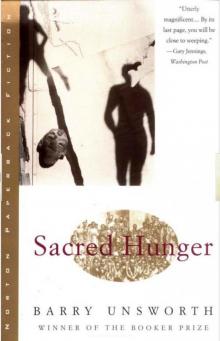 Sacred Hunger
Sacred Hunger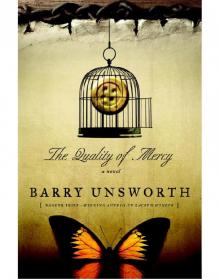 The Quality of Mercy: A Novel
The Quality of Mercy: A Novel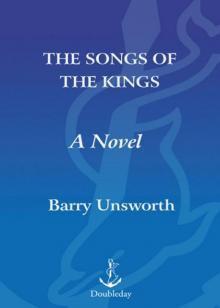 The Songs of the Kings: A Novel
The Songs of the Kings: A Novel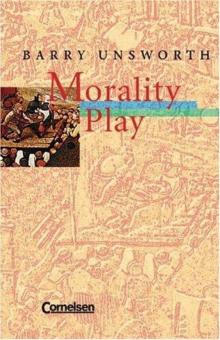 Morality Play. Mit Materialien. (Lernmaterialien)
Morality Play. Mit Materialien. (Lernmaterialien)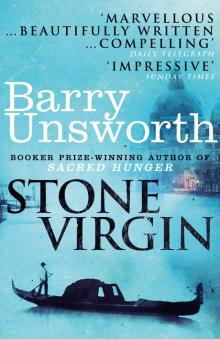 Stone Virgin
Stone Virgin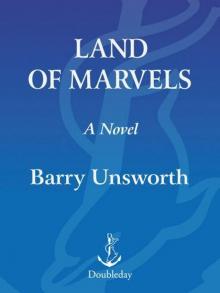 Land of Marvels
Land of Marvels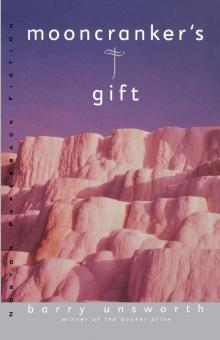 Mooncranker's Gift
Mooncranker's Gift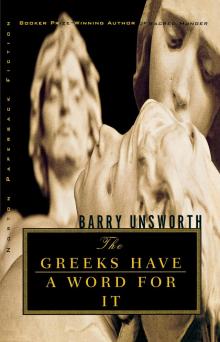 The Greeks Have a Word for It
The Greeks Have a Word for It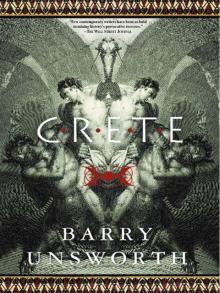 Crete
Crete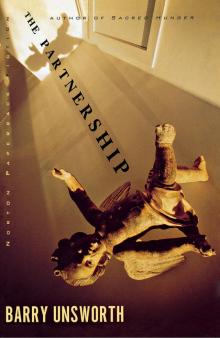 The Partnership
The Partnership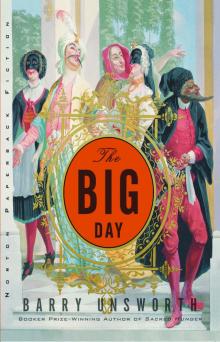 The Big Day
The Big Day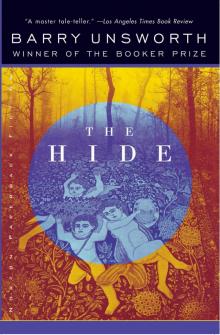 The Hide
The Hide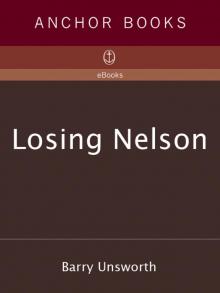 Losing Nelson
Losing Nelson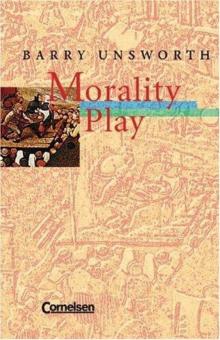 Morality Play
Morality Play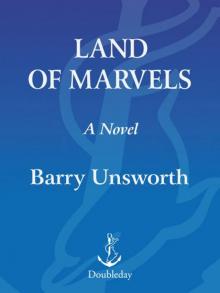 Land of Marvels: A Novel
Land of Marvels: A Novel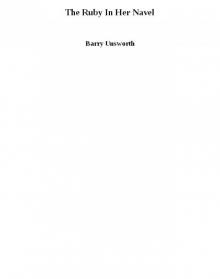 The Ruby In Her Navel
The Ruby In Her Navel